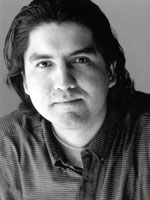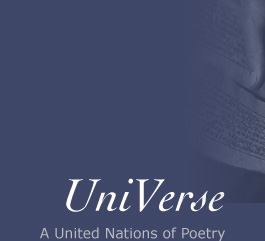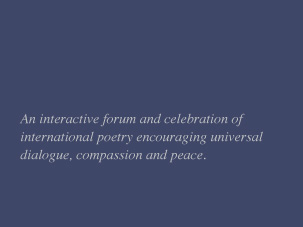| |
 |
 |
 |
 Sherman
J. Alexie Jr. is a Spokane/Coeur d’Alene Indian
who grew up on the Spokane Indian Reservation in Wellpinit,
WA. Alexie was born in October 1966, with hydropcephalus, or
water on the brain, and was not expected to survive. At six
months, he came through a difficult brain surgery only to suffer
seizures and other side-effects of the condition throughout
his childhood. Despite these challenges, Alexie learned to
read at age three and soon began reading literature voraciously,
including The Grapes of Wrath. Sherman
J. Alexie Jr. is a Spokane/Coeur d’Alene Indian
who grew up on the Spokane Indian Reservation in Wellpinit,
WA. Alexie was born in October 1966, with hydropcephalus, or
water on the brain, and was not expected to survive. At six
months, he came through a difficult brain surgery only to suffer
seizures and other side-effects of the condition throughout
his childhood. Despite these challenges, Alexie learned to
read at age three and soon began reading literature voraciously,
including The Grapes of Wrath.
Alexie decided to attend high school at Reardan High, 20 miles south of the reservation, where he was the only Indian except for the school mascot. Still, he excelled academically and athletically and won a scholarship to attend Gonzago University. Alexie transferred from Gonzaga to Washington State University in Pullman, WA, where he left his pre-med major to pursue writing. Shortly after graduating, Alexie won a Washington State Arts Commission Poetry Fellowship and a National Endowment for the Arts Poetry Fellowship and published two collections of poetry, I Would Steal Horses and The Business of Fancydancing. He also published a collection of short stories, The Lone Ranger and Tonto Fistfight in Heaven, with Atlantic Monthly Press. This collection received a PEN/Hemingway award for Best First Book of Fiction and a Lila Wallace Reader’s Digest Award, and was reissued in 2005 through Grove Atlantic Press.
Alexie was named one of Granta’s Best Young American Novelists and won the Before Columbus Foundation’s American Book Award and the Murray Morgan Prize for his first novel, Reservation Blues. His second novel, Indian Killer, published in 1996, was a New York Times Notable Book.
Alexie has participated in several artistic collaborations, including performances with musician Jim Boyd, a Colville Indian, and a film project with Chris Eyre, a Cheyenne/Arapaho Indian. Together, they adapted one of Alexie’s stories into the screenplay for the movie “Smoke Signals.” Winning the Audience Award and the Filmmaker’s Trophy at Sundance, the film was nationally distributed by Miramax in 1998. In 1999, it garnered additional honors, including the Christopher Award and the Independent Spirit Award for Best First Screenplay.
Alexie is the only poet to win the Heavyweight Poetry Bout four years in a row, and is also an occasional performer of stand-up comedy. Moreover, he has participated in several serious discussions at conferences and on television, as part of the “Lehrer News Hour Dialogue on Race” with President Clinton, “NOW with Bill Moyers,” and “Our Big American Family” with Oprah Winfrey.
To date, Alexie has published 17 books, including the poetry collections, First Indian on the Moon and One Stick Song, both by Hanging Loose Press, and his most recent collection of short stories, Ten Little Indians. In 2007, Alexie and his organization, FallsApart Productions, will release an anthology of Native American Writing by writers born after 1960.
|
 |
 |
English
version
Evolution
Buffalo Bill opens a pawn shop on the reservation
right across the border from the liquor store
and he stays open 24 hours a day, 7 days a week
and the Indians come running in with jewelry
television sets, a VCR, a full-length beaded buckskin outfit
it took Inez Muse 12 years to finish. Buffalo Bill
takes everything the Indians have to offer, keeps it
all catalogued and filed in a storage room. The Indians
pawn their hands, saving the thumbs for last, they pawn
their skeletons, falling endlessly from the skin
and when the last Indian has pawned everything
but his heart, Buffalo Bill takes that for twenty bucks
closes up the pawn shop, paints a new sign over the old
calls his venture THE MUSEUM OF NATIVE AMERICAN CULTURES
charges the Indians five bucks a head to enter.
(Reprinted with permission from The Business of Fancydancing,
Hanging Loose Press, 1993.) |
 |
 |
| A Poem Written in Replication of My Father’s Unfinished
Novel Which He Would Read to His Children Whenever He Was Drunk |
English |
 |
|
 |
|
English
version
A Poem Written in Replication of My Father’s Unfinished
Novel Which He Would Read to His Children Whenever He Was Drunk
Indian Summer. Leaves fallen
from government trees. They remind me of sex.
My mother and father dead.
My father fell
at Okinawa, shot by a Japanese sniper.
I do not hate the Japanese. My lover is
Japanese. She reminds me of sex.
Pregnant, my mother coughed
blood into a paper tissue.
She died two weeks after I was born.
Now my Japanese lover is pregnant. She whispers
stories to her stomach about a small island
in the Pacific where her father killed
an American soldier during the war.
My lover and I wonder aloud
if her father killed my father.
We shiver in the heat of it.
It reminds us of sex.
After my parents died, I lived
with my aunt, who had enough money
to send me to Catholic School. I was
the only Indian who went to Catholic School
on purpose. I learned to play piano.
I jitterbugged with Catholic girls
and their pale thighs.
They smelled like sex.
I fell in love with all of them.
I learned chord after chord. Sex.
Often, these days, I stand at the window
of my reservation home
while my Japanese lover sleeps alone
in the scattered bed. She is pregnant.
Her father and mother live
with the dead in Hiroshima.
My father and mother are also dead.
Piano. Chord after chord. Island.
That window. This window.
One Indian boy runs
blindly through the trees.
A shadow falls
over everything.
Sex. Leaf, Faith. Glass.
If I stand at the window long enough
I will see the long thread of history
float randomly through the breeze.
This is all I know about peace.
(Reprinted with permission from One Stick Song, Hanging Loose Press, 2000.) |
 |
 |
|
 |
|





